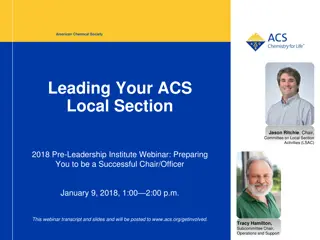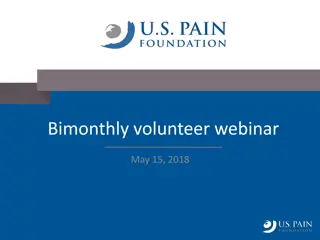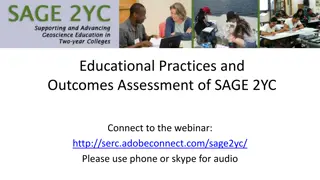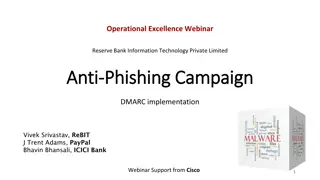
Gunderson Dettmer: Leading Legal Expertise for Innovation Economy
Representing high-growth companies globally, Gunderson Dettmer is a renowned leader in legal services for venture capital, IPOs, M&A, and public companies. With a focus on innovation, their team offers valuable insights and guidance for General Counsels and legal departments in navigating complex legal and governance challenges.
Download Presentation

Please find below an Image/Link to download the presentation.
The content on the website is provided AS IS for your information and personal use only. It may not be sold, licensed, or shared on other websites without obtaining consent from the author. If you encounter any issues during the download, it is possible that the publisher has removed the file from their server.
You are allowed to download the files provided on this website for personal or commercial use, subject to the condition that they are used lawfully. All files are the property of their respective owners.
The content on the website is provided AS IS for your information and personal use only. It may not be sold, licensed, or shared on other websites without obtaining consent from the author.
E N D
Presentation Transcript
BUILDING THE GC ROLE September 24, 2024 We represent what s next.
Clear Leader for the Innovation Economy Gunderson Dettmer has decades of experience representing high-growth companies in their financings, IPOs and M&A transactions, and throughout their lives as public companies. 400 lawyers globally in 11 offices worldwide 500+ venture capital and growth equity clients, and thousands of their underlying funds 4,500+ company clients in the innovation economy worldwide #1 GLOBALLY most active law firm for venture capital financings every year since 2014 (PitchBook) 1,800+ venture financings for companies closed since 2022 $29B+ 300+ raised in venture financings for companies since 2022 M&A transactions globally since 2022 2
Agenda PART 3 PART 3 1. Upcoming small cohort meetings 2. What a fully formed GC role looks like 3. What s the GC s Relationship with the Board? 4. What do directors want from the GC? 5. Getting Exposure to the Board 6. Co-existing with Outside Counsel at the Board Level 7. What is Brett telling CEOs to look for? 3
Bretts Practice Background Re-joined Gunderson as Of Counsel in mid-2023 Current Practice Providing in-house perspective on approaching legal and governance challenges Advising life science and public companies on issues specific to them GC in residence Help GCs think through operational, legal and governance issues Mentor GCs on their development and the development of the legal team Help CEOs think about establishing a legal department and evaluate and shape existing legal teams Evaluate legal department structure and talent level, consult on resourcing and department structure Phone a friend something I constantly searched for in-house 4
Opportunity for Small Group Discussions If there is sufficient interest from all or a portion of you, this Fall we will be hosting/moderating a series of small group discussions among 6 to 8 GCs and heads of legal These discussions will be over Zoom and will be one hour long Discussions are intended to: - Create an opportunity for networking - Provide a safe space for people to discuss with peers in other companies some of the challenges they are facing in Building their GC Roles - Opportunity to hear how others have tackled similar challenges and get some ideas and feedback - Chance to see first-hand that you are not the only one out there working through these issues Chatham House Rules will apply What happens in the session, stays in the session If you are a GC or Head of Legal, you will soon receive an email invitation to register for these sessions We can t guarantee participation to everyone since we don t know how much or how little demand we will have - We will do our best to include everyone who registers their interest. Sessions will start in November. 5
Melissas Practice Joined Gunderson s NY office in 2008 General Counsel of a VC-backed company 2011-2014 Company-focused practice 6
What a fully formed GC role looks like GC reports directly to the CEO, or at least attends executive meetings GC is part of strategic discussion Participates in strategic, operational and personnel issues in real time GC has thoughtful, well-informed, actionable commentary on strategy for both business and legal considerations GC viewed by CEO, executives and the Board as the go to person for neutral, objective, direct and discreet advice on legal and other matters - GC takes the lead on all legal matters, bringing in outside counsel, as needed - CEO and executives don t feel the need to go directly to outside counsel before consulting GC - A pre-requisite to this status is people getting what the came for when approaching the GC for advice CEO, executives and Board members confident they get practical, actionable, objective, neutral advice every time they approach the GC 7
What a fully formed GC role looks like GC has highly visible role with the Board Attends meetings and takes minutes, advises Board on legal matters, as needed Develops agendas with Board chair/LID, committee chairs and CEO Advises chair/LID and committee chairs on their duties Solicits feedback from directors on Board and committee meetings, how Board is functioning Fields questions from directors between meetings; maintains dialogue between meetings Participates in shaping Board composition GC deeply understands the business Because serving the entire corporation, will have critical insights on operational issues often better than the CEO and other executives This can give GC enormous influence and value on operational and policy matters GC sees around corners and can address critical legal and compliance issues implicated by the company s strategic vision GC can serve Secretary of State role with community, politicians, regulators, competitors, vendors, prosecutors, etc. Helps address challenging issues across the company 8
What a fully formed GC role looks like GC is consigliere to the CEO Requires deep understanding and trust of CEO, fellow execs and company s business GC carries messages to key constituencies and completes projects on CEO s behalf In public companies, GC engages with stockholders on governance issues Develops and leads compliance programs Serves as conscience of the company Sometimes takes on non-legal roles, such as public relations, government affairs, HR, business development, operations As companies grow, HR and BD are less likely to be in GC court 9
Whats the GCs relationship with the Board? Depends on the stage of the company and the composition of the Board Typical relationship Trusted provider of practical, objective advice Provide governance and company-related legal (and business) advice Discuss agendas and content of board and committee meetings Sometimes includes discussion of how Board is functioning Periodic calls with individual directors between Board meetings to check in on various issues Status of legal matter Discuss issue from Board meeting that resonated with or concerned a director Director stock and option issues Receive feedback on various legal and non-legal matters Provide feedback on Board and director performance 10
What do directors want from the GC? Although the GC s relationship with Board members will not be as personally or professionally close, Board members are looking for much the same thing the CEO is looking for. - They want a trusted, neutral, objective, direct and discrete advisor with whom they can easily communicate - Some directors are new and need help understanding and performing their roles - Directors have different risk tolerances and levels of sophistication - Different directors get focused on different issues and risks and want comfort they are doing the right thing - Sometimes the Board has informal camps . Each camp wants to know it gets the same objective advice. Directors are increasingly worried about managing the company s risk and their own personal liability - For example, they are expected to understand and manage risks associated with strategy, competition, financing, privacy and cybersecurity. Few have expertise in all, or even several, of these issues. - They are hyper aware of their areas of expertise and their gaps, and are focused on meeting their fiduciary responsibilities, even if they don t always fully understand them Because directors are not as deeply involved in the day-to-day operation of the company, they can over or under index on the level of risk a particular issue or series of issues poses to the company Board members also want to be assured that the GC is, or can, play these roles for the CEO and management. 11
What do directors want from the GC? For all of these reasons, when the Board is thinking about who their legal representative should be, they are going to set a high bar for the person responsible for helping them manage company and personal liability YOU Key things to keep in mind in this regard: - Board members see you less than your colleagues. You have fewer opportunities to get them to see you as their advisor. This puts a premium on you performing at your best when interacting with directors as a Board or individually. Be uber prepared and practiced for known interactions. For impromptu interactions, if you know the answer in the moment, communicate it. If you don t, don t pretend you do. Tell the director you will think about it and get back to them. It s hard to recover from a wrong answer. Just like with the CEO, work hard to develop your relationship with each director. - Someday the stuff is going to hit the fan. Litigation, product failure, executive scandal, bad quarter - Working through a crisis with a Board requires high levels of trust and respect between the GC and Board members. Trust and respect is earned, not bestowed. Earn it ahead of time. - If the crisis involves a Board member, or a member of the C-Suite, there s an even higher premium on having established your brand as a trusted, neutral, objective advisor beforehand. When the CEO discusses with the Board whether you should be promoted to GC, or be kept on for the IPO or as the company grows, all of this is what the Board is thinking about. Do they want you in their foxhole? - Do they think you fill the role I described for the CEO relationship in Webinar 1 and for the Board as just described 12
Getting exposure to the Board Don t seek exposure for the sake of exposure In very early-stage companies, legal may not be central to the company s strategy or development. For GCs that don t have corporate background, the outside law firm s corporate partner or senior associate will likely have skills that are more relevant to the Board, e.g., experience with venture financing, IPOs, M&A, governance and disclosure Ask outside counsel to help you learn in areas where you have less experience Let them know you are working toward providing more of the legal advice a Board meetings There may not be any issues that require the active participation of in-house legal other than documenting Board activities thru the minutes There is a governance role for lawyers in the Board room Minutes, Board and stockholder governance matters If the GC is in the room, GC will be expected to competently address the Board s governance questions If there are legal or compliance issues that require Board level discussion, GCs should advocate to lead that discussion 13
Getting exposure to the Board Before you ask for exposure to the Board, make sure you are ready Do I know enough about governance and other issues the Board is focused on? Am I providing clear, practical, strategic, actionable advice? Do I need to work on my legal presentation or communication skills? Don t forget: The Board is the CEO s boss The performance of those the CEO puts in front of the Board reflects on CEO CEO needs to be confident GC will provide accurate and practical advice If you were the CEO, would you put yourself in front of the Board? Goes back to trust and relationship building Alert the CEO when talking to Board members 14
Co-Existing with Outside Counsel at the Board Level In most early-stage private and young public companies, outside counsel attends the Board meetings, while in-house counsel may not Outside counsel provides advice on financing, governance, disclosure and other legal matters This can make it difficult for in-house counsel to get access to the Board room Outside counsel s participation at Board meetings typically continues until the CEO and Board members view the General Counsel as a capable or preferred substitute for outside counsel - This status is earned, not bestowed Typically takes a couple years after the IPO, but can end earlier depending on experience of the General Counsel Can be a fraught process for the General Counsel Outside counsel has typically been with the CEO since incorporation and may have represented them in prior companies Venture capitalists or other Board members may be more comfortable with outside counsel than with you. CEO may always, or for some period, want the GC to run advice past outside counsel due to their comfort level. CEO doesn t want to crowd the Board room with multiple lawyers, so the internal lawyer gets excluded. 15
Co-Existing with Outside Counsel at the Board Level A couple strategies here: - Get to work on everything we just went over regarding what a Board is looking from the head of legal or GC. Develop those relationships and the expertise to answer questions you are likely to get from them. - Discuss with outside counsel your desire to play a larger role with the Board over time Ask them to mentor you on issues for which you have little experience Ask them questions about the advice they are giving and why Don t turn major projects over to them without your deep involvement so that you can learn You will have to assess based on your company s situation how best to co-exist with counsel Again, they key to elevating your role is to earn your status as the go to legal person for the company and the Board. - The more you achieve that, the more likely it is that the CEO and the Board will eventually conclude that you should play a larger role given your closer, day-to-day understanding of the company. 16
What is Brett telling CEOs to look for? My conversations with CEOs revolve around their wanting to understand how to evaluate whether their in-house counsel can take the company from where it is to where it wants to go My questions: - How is your relationship with your counsel? Is it open and direct? Do your personalities mesh? Can you see yourself working through a very difficult problem with counsel? - Does the advice from your counsel resonate with you? Is it communicated clearly? Actionable and practical? - Do you trust your counsel to keep confidences and give you objective and neutral advice? - Is your counsel a good athlete? How hard are they working? Are they a self starter? Do you believe they have the ability to learn and address the areas for which they are less familiar? 17
Questions? 18






















